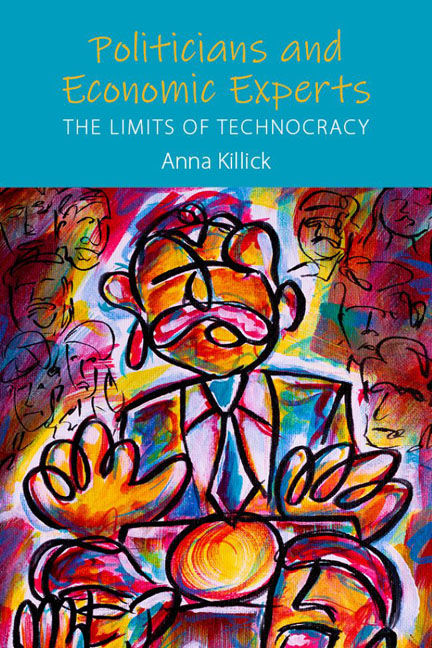9 - “Educative” Politicians Rather Than Technocracy
Published online by Cambridge University Press: 20 January 2024
Summary
It's up to us to show that every day, in the decisions we take, in what we do, that we are for the general interest, that we defend the general interest. And, yes, I will tell you that, taking into account all the idiocies we’ve committed, we are going to need a bit of time to go up in esteem and to find trust again. Voilà.
(French Socialist politician)
The first question I have asked about economic technocracy is whether it is workable, whether politicians are likely to cede more control to economic experts. Crucial here is their respect for economic expertise. In this chapter, following the national and ideological variations, I return briefly to the subject of the low level of that respect overall.
There is more to say here about the second question, of whether economic technocracy would be desirable. I look again, following the national and ideological variations, at the vexed question of whether economic technocracy undermines democracy. I show that politicians seem uneasy about the damaging effects on democracy of past attempts they made to take economic policy out of the political domain and cede control to experts. Their unease supports the argument that any further embracing of technocracy could fuel populism and, by doing so, destabilize democracy. However, we need to ask why politicians were so accepting of the past attempts to take economics out of the political domain. I return to the long-standing tension, which may pre-date populism, at the heart of politicians’ relationships with voters: the mismatch between politicians’ moral economic visions and voters’ self-interest. Politicians have attempted to fudge that mismatch, not only in the past ceding control to experts but also, more broadly, in the downplaying of explanation and education in their communication with voters on economic issues. But the increased complexity of the economic issues, alongside the arrival of populism, makes it more important than ever before that politicians are more open with voters about their economic visions and make fuller efforts to explain them, reaching the Mansbridge standard of “educative” communication. In the final part of the chapter, I draw on the interviewees who believe they are already educating voters about economics in order to offer their advice as a blueprint for others as to how to educate.
- Type
- Chapter
- Information
- Politicians and Economic ExpertsThe Limits of Technocracy, pp. 135 - 152Publisher: Agenda PublishingPrint publication year: 2022

